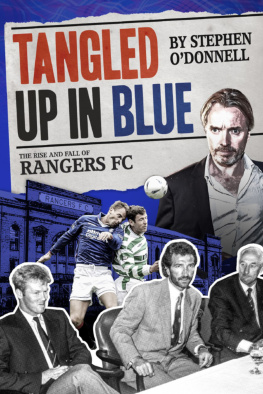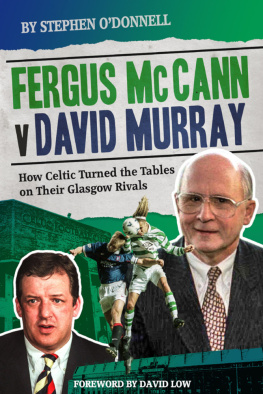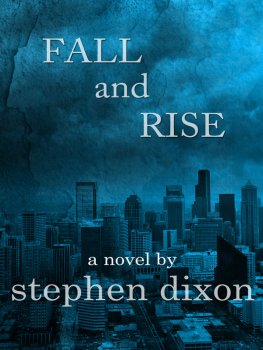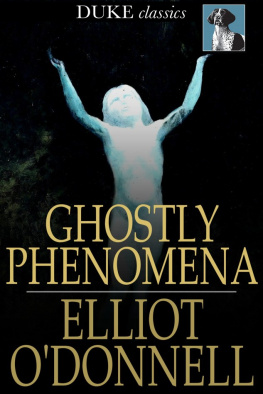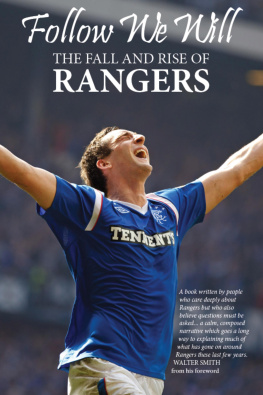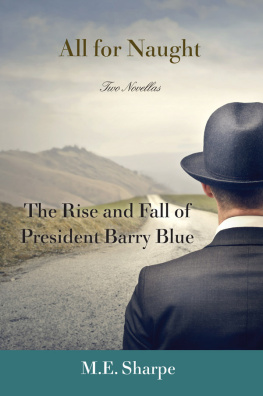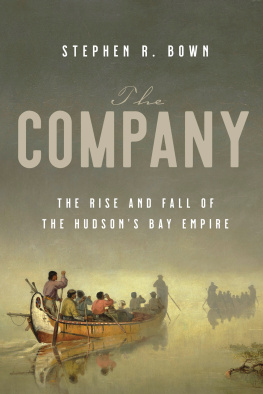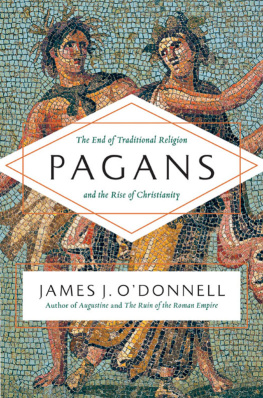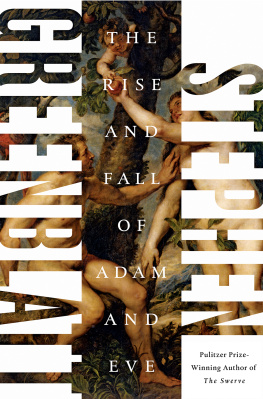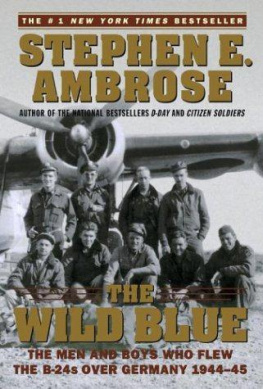Stephen ODonnell - Tangled up in blue : the rise and fall of Rangers FC
Here you can read online Stephen ODonnell - Tangled up in blue : the rise and fall of Rangers FC full text of the book (entire story) in english for free. Download pdf and epub, get meaning, cover and reviews about this ebook. City: Worthing, year: 2019, publisher: Pitch Publishing, genre: Detective and thriller. Description of the work, (preface) as well as reviews are available. Best literature library LitArk.com created for fans of good reading and offers a wide selection of genres:
Romance novel
Science fiction
Adventure
Detective
Science
History
Home and family
Prose
Art
Politics
Computer
Non-fiction
Religion
Business
Children
Humor
Choose a favorite category and find really read worthwhile books. Enjoy immersion in the world of imagination, feel the emotions of the characters or learn something new for yourself, make an fascinating discovery.
- Book:Tangled up in blue : the rise and fall of Rangers FC
- Author:
- Publisher:Pitch Publishing
- Genre:
- Year:2019
- City:Worthing
- Rating:3 / 5
- Favourites:Add to favourites
- Your mark:
- 60
- 1
- 2
- 3
- 4
- 5
Tangled up in blue : the rise and fall of Rangers FC: summary, description and annotation
We offer to read an annotation, description, summary or preface (depends on what the author of the book "Tangled up in blue : the rise and fall of Rangers FC" wrote himself). If you haven't found the necessary information about the book — write in the comments, we will try to find it.
Tangled up in blue : the rise and fall of Rangers FC — read online for free the complete book (whole text) full work
Below is the text of the book, divided by pages. System saving the place of the last page read, allows you to conveniently read the book "Tangled up in blue : the rise and fall of Rangers FC" online for free, without having to search again every time where you left off. Put a bookmark, and you can go to the page where you finished reading at any time.
Font size:
Interval:
Bookmark:
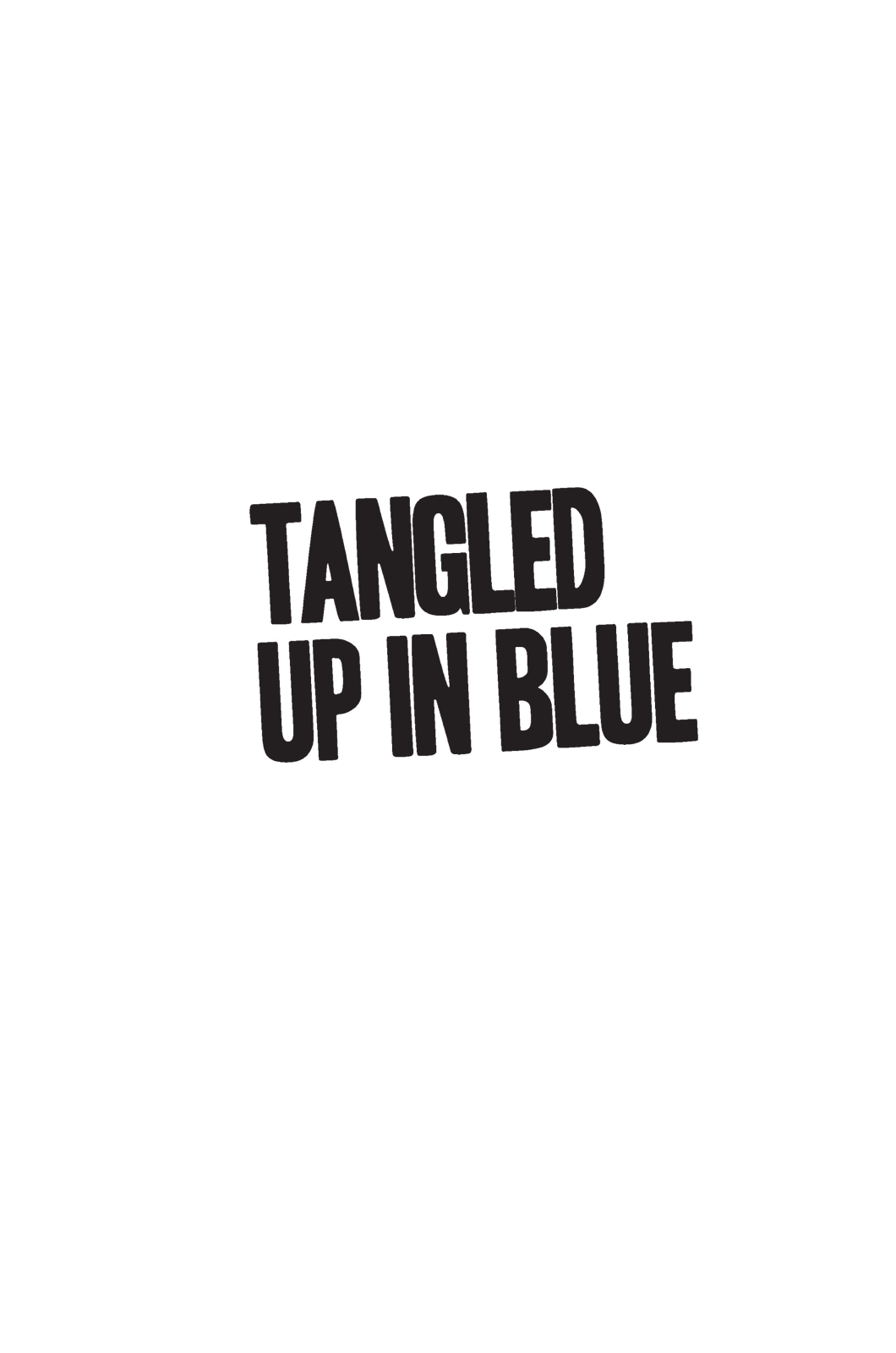
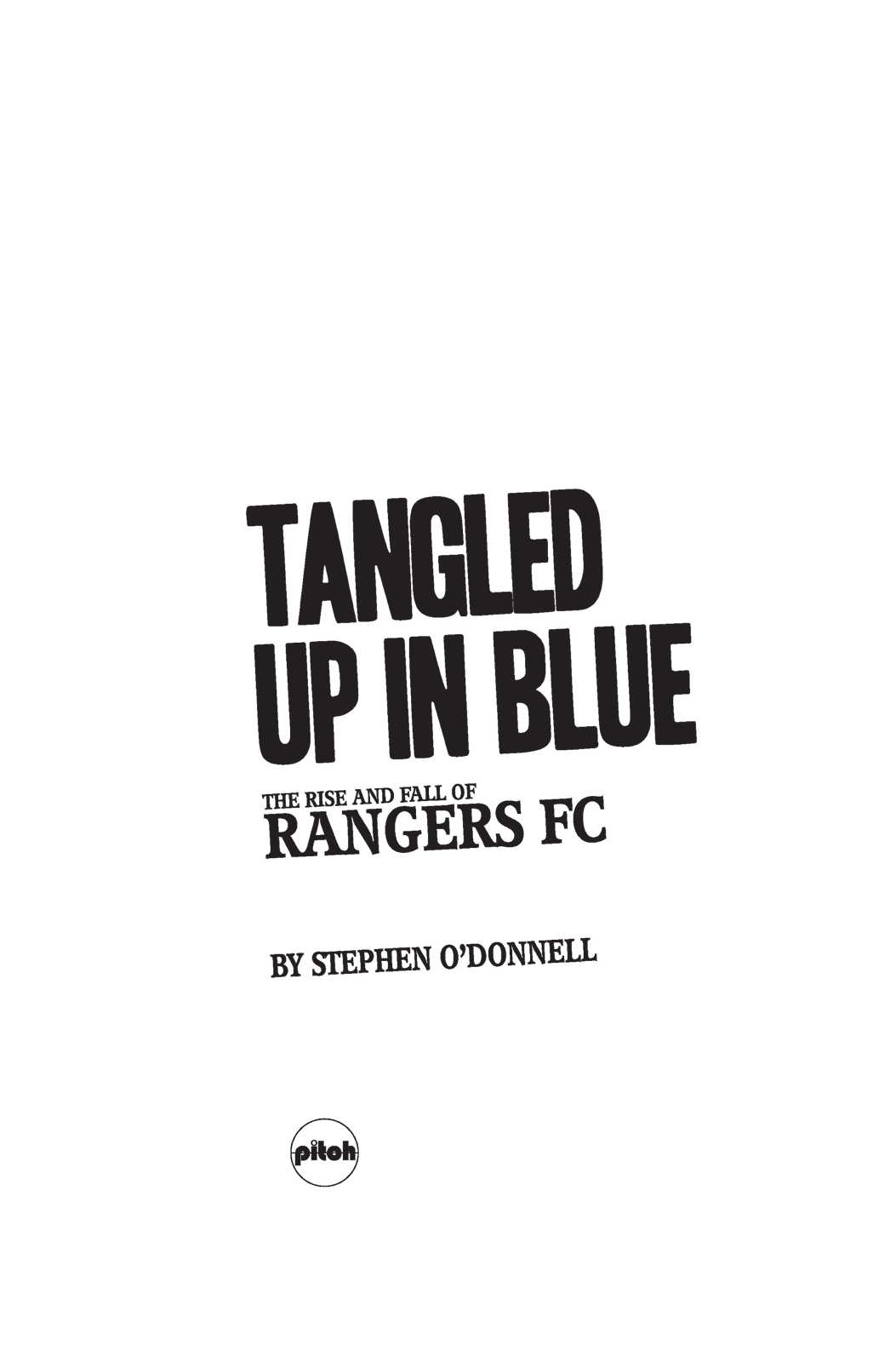
First published by Pitch Publishing, 2019
Pitch Publishing
A2 Yeoman Gate
Yeoman Way
Durrington
BN13 3QZ
www.pitchpublishing.co.uk
Stephen O'Donnell, 2019
All rights reserved under International and Pan-American Copyright Conventions. By payment of the required fees, you have been granted the non-exclusive, non-transferable right to access and read the text of this e-book on-screen. No part of this text may be reproduced, transmitted, downloaded, decompiled, reverse-engineered, or stored in or introduced into any information storage and retrieval system, in any form or by any means, whether electronic or mechanical, now known or hereinafter invented, without the express written permission of the Publisher.
A CIP catalogue record is available for this book from the British Library
Print ISBN 978-1-78531-509-1
eBook ISBN 978-1-78531-595-4
--
Ebook Conversion by www.eBookPartnership.com
The author would like to thank the following people for their help in the writing of this book: Douglas Beattie, Alan Bissett, Dr Joe Bradley, Elizabeth Clark, Mark Daly, Gerry Dunbar, Alex Gordon, Sandy Jamieson, David Low, Joe McHugh, Pat McVey, Katherine Midgley, Professor Patrick Reilly RIP, Emily Rudge, Brendan Sweeney and Pat Woods.
RELIGIOUS
BIGOTRY
Sine ira et studio, Tacitus
T HIS is not a fairy story. Of the four teenagers who founded Rangers Football Club, following meetings and conversations in what is now Kelvingrove Park in the west end of Glasgow in March 1872, one was drowned, another declared insane, yet another was an accused fraudster, a bigamist and a certified imbecile, who lived out his days in a poorhouse, while the fourth was comparatively lucky he died a lonely old man.
These boys, described with characteristic bombast by Bill Struth, the clubs severe, authoritarian manager from 1920 until 1954, as The Gallant Pioneers, were looking to add the game of association football to their list of other vigorous pastimes, such as rowing, athletics and, since these lads were from the Gaelic stronghold of Argyll, shinty.
In many ways Peter Campbell, William McBeath and brothers Moses and Peter McNeil were just an ordinary group of young friends, recently arrived into the city of Glasgow from the area around the Gare Loch, an inlet in the Firth of Clyde, 30 miles up the coast from their adopted home. Living mostly in crammed households, with elder siblings rather than parents, they were from unexceptional, lower-middle-class backgrounds and held ordinary, white collar occupations. But, fired up with what youth imparts, they were also upwardly mobile and ambitious and, perhaps having had their eyes opened by the nearby ostentatious wealth of the leafy west end districts in the second city of what was then a flourishing British Empire, they had lofty ideas about their prospects and of making a name for themselves.
As an organised sport, football had burst out of the English public school system, following the codification of the games laws in 1863, and taken the country by storm. Thrilling and uplifting, yet also earthy and rugged, the game was quickly adopted by the harassed working population, who, through a shared sense of identity and belonging, took to supporting their local teams over the course of the next few decades in increasingly remarkable numbers.
Inspired by the exploits of some of the other early Scottish sides such as Third Lanark and Vale of Leven, who were founded in the same year, and the dedicated amateurs of nearby Queens Park, the Gare Loch boys showed tremendous dedication to their new pursuit, practising six nights a week and playing their games at Fleshers Haugh on the open spaces of Glasgow Green in the east end of the city. Often they would book their playing area hours in advance, with one of their group, usually Peter McNeil, given the task of guarding the field and planting the goal sticks in the morning, so that nobody would have moved on to their patch by the afternoon.
Like many of the other great urban centres of Britain, Glasgow had expanded exponentially over the course of the Industrial Revolution, as the rustic, agrarian lifestyles of the previous century based on the annual cycle of the harvest were replaced by a relentless, factory-orientated routine, unaffected by climate or season. Glasgow Green was built on land set aside by the enlightened city fathers, who wished to provide residents with some space for recreation, an idea which would be embraced even more fully by the working population following the introduction of half-day Saturdays in the second half of the 19th century. By law, all factory activity on a Saturday now had to end by 2pm, allowing skilled workers to enjoy an extended period away from the factory floor for the first time. Tagged on to the Sabbath, the day of rest, the idea of the weekend was born, and across Britain Saturday afternoon became the designated slot for watching and playing the popular new game of football.
Although the boys were probably still calling their new team Argyll at the time, Rangers first recorded match, with a side cobbled together from a collection of the friends, siblings and fellow clansmen of the teenagers, was a goalless draw against a team from the town of Callander in Perthshire, played in May 1872. Fifteen-year-old William McBeath, the only founder member not from the area around the Gare Loch, was in fact competing against his home town and probably helped to organise the fixture by securing the opposition for his clubs inaugural match. Perhaps for that reason, young McBeath played out of his skin, was voted man of the match, and had to lie up in bed for a week following the bruising encounter in order to recover from his exertions.
Described as a terrible spectacle by William Dunlop, an early Rangers player, future president and, later, club historian, the match would have borne only a passing resemblance to the familiar modern game, with most of the team not even properly stripped and playing in their day to day clothes. The only players to wear kit were Harry McNeil, elder brother of Moses and Peter, and his mate, Willie McKinnon, both of whom were regulars with Queens Park at the time, along with two other experienced players borrowed from a team called Eastern. Harry McNeil would go on to win ten caps for Scotland between 1874 and 1881. However, it seems unlikely that he would have been able to successfully introduce his amateur clubs pioneering passing game to this team of novices.
Despite the tentative start, the young men persisted and it wasnt long before their club was up and running, with office bearers elected and training sessions formally organised. The enthusiastic youngsters even managed to secure the patronage of the future 9th Duke of Argyll for their new enterprise, Queen Victorias son-in-law, the Marquis of Lorne, although the local aristocrat for the region of their familial homes left Britain in 1878 to become Governor General of Canada and never managed to attend any of their matches. They called their new team Rangers, as likely as not because they liked how it sounded, but it has also been suggested, perhaps rather implausibly, that the name might be a form of rhyming slang, as all these young men were still relative strangers to their adopted city at the time.
Font size:
Interval:
Bookmark:
Similar books «Tangled up in blue : the rise and fall of Rangers FC»
Look at similar books to Tangled up in blue : the rise and fall of Rangers FC. We have selected literature similar in name and meaning in the hope of providing readers with more options to find new, interesting, not yet read works.
Discussion, reviews of the book Tangled up in blue : the rise and fall of Rangers FC and just readers' own opinions. Leave your comments, write what you think about the work, its meaning or the main characters. Specify what exactly you liked and what you didn't like, and why you think so.

